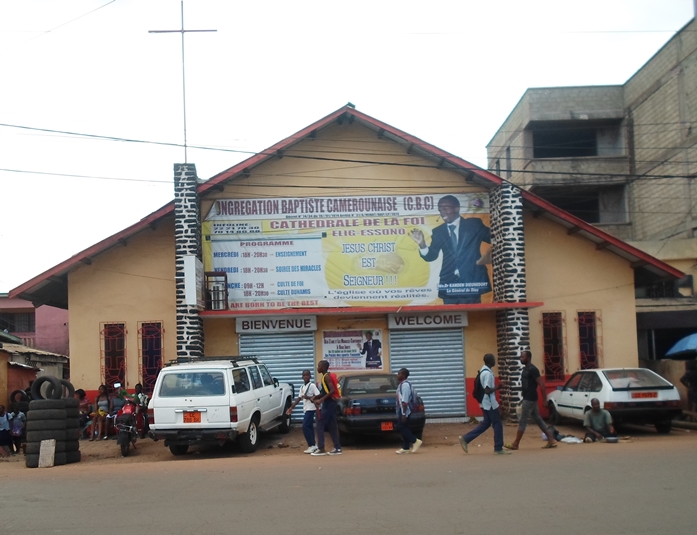
The government of Cameroon has ordered the closure of dozens of churches in an attempt to put an end to what it considers to be anarchy among some Christian organisations.
The measure, which authorities began to impose on August 23, targets Pentecostal churches, which are not officially recognised.
The minister of communications, Issa Tchiroma Bakary, said at an Aug. 28 press conference that the churches engage in “unhealthy” and “indecent” practices contrary to the goal of spiritual growth of the people.
Bakary also denounced “obvious cases of extortion of people in desperate situation”, “repeat nocturnal uproars”, and “proselytising”.
“In such a situation… the government could not remain indifferent and inactive,” he said. “The administrative authorities which are responsible for the preservation of public order had to take responsibility.”
About 10 churches have had their doors locked in Yaoundé, the capital. In Bamenda, the main town in the northwest, which houses a high proportion of the country’s Christians, some 20 churches have been affected.
In total, 35 churches were closed across the country, according to Bakary.
Pastor Naida Lazare, President of Cameroon’s Christian Media Network, said that several churches had sought government approval for more than 10 years, but received no response.
“Many churches and Christian organisations have sought in vain for their legalisation. They have gone through all administrative and legal procedures. But they have not received any notification indicating the rejection or approval of their associations,” he told World Watch Monitor. “Instead of blaming Christian organisations or men and women often above suspicion, the government would gain much by regulating these associations, as many of them have been waiting for over a decade.”
Cameroon is a secular country in Central Africa. Almost 80 per cent of its 20 million people are Christians. Freedom of worship and religion is guaranteed by the constitution, reinforced by Act No. 90/053 of Dec. 19, 1990, regulating religious organisations.
This law stipulates that the exercise of religious worship should be subject to the approval of the minister of interior affairs, and authorisation by the president.
“Many churches have been waiting for over a decade for their legalisation.”
Naida Lazare, Christian Media Network
Since the 1990 law, Pentecostal organisations have experienced remarkable growth in the country. Dozens of churches, which often have links in neighbouring Nigeria, settled in the country.
Such rapid growth has come at the expense of historical churches such as the Catholic Church, which has seen a great number of its followers join Pentecostal movements.
These Pentecostal churches are renowned for their dynamism and ability to mobilise crowds.
It is difficult to know the precise number of churches in the country. Officially, only 47 permits were granted to Churches or Christian organisations between 1990 and 2009, whereas about 500 denominations are operating across the country.
“This would mean that the overwhelming majority of those churches that are currently swarming our cities and towns exist illegally, benefiting from the tolerance of our administrative system,” Bakary said.
Bishop Dieudonné Abogo, President of the Pentecostal Union of Cameroon, acknowledged that some churches are rowdy.
“The use of loud music during services may cause real disturbance to neighbourhoods in some areas,” said Abogo. “This causes great damage to the reputation of officially recognised churches.”
The decision to close non-recognised churches is not new in Cameroon. A number of Pentecostal churches in Cameroon have been closed in recent years by local authorities following complaints by residents. Abogo said governing bodies such as the Pentecostal Union of Cameroon should work with the government to find a solution.